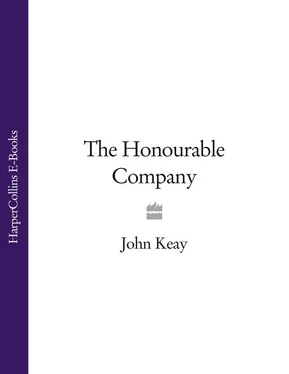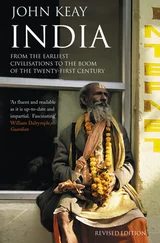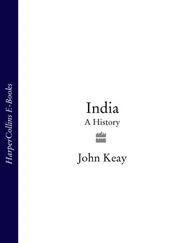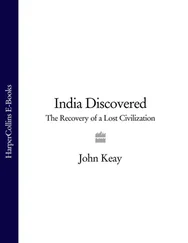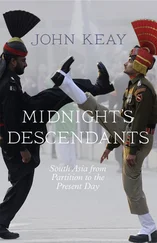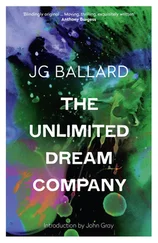This indiscriminate firing of a few ‘pieces’, often on the flimsiest of pretexts, would account for a good many lives. So much so that in London the directors would be moved to protest that it was quite unnecessary to salute every port, every passing vessel, every visitor, every imaginable anniversary. Yet if anything the practice grew and there was probably more powder expended in ceremonial than in battle. To Lancaster and subsequent commanders it was self-evident that the morale and efficiency of their crews demanded the firing of frequent practice salvoes.
Leaving Madagascar in early March the fleet stood out into the Indian Ocean. Its next landfall was at the Nicobar Islands off Sumatra. Here the decks were cleared for action, Lancaster again anticipating prize-taking as much as trade. On 5 June, sixteen months after leaving the Thames, they finally anchored off Aceh.
Here we found sixteen or eighteen sail of shippes of diverse nations – Gujeratis, some of Bengal, some of Calicut [south India] called Malibaris, some of Pegu [Burma] and some of Patani [Thailand] which came to trade here.
To the Muslims of Indonesia Aceh is still ‘The Gateway to Mecca’. Here pilgrims embark for the baj to Arabia and here Arab and Indian traders first brought the teachings of Islam to the Archipelago. Like Venice in the eastern Mediterranean, Aceh traditionally controlled the western approaches to the busy trading world of south-east Asia. It was a cosmopolitan sea power and much of its population was of Arab and Indian descent. By 1602 its concourse of shipping could probably not compare with that at the rival Portuguese establishment of Malacca on the other side of the Straits. It must, nevertheless, have seemed to Lancaster and his men that they had at last, and in every sense, arrived. Ala-uddin Shah was reportedly anxious to meet them and in due course sent ‘sixe greate ellifants with many trumpets, drums and streamers’ to convey the English to his court. The Queen’s letter, suitably addressed by the fleet’s calligrapher, travelled in front, wrapped in silk and reposing in a ewer of gold which was housed in a sumptuous howdah on the biggest elephant of all.
Like most of his contemporaries, Lancaster was easily impressed by oriental magnificence and willingly prostrated himself before Ala-uddin Shah ‘after the manner of the country’. Newcomers in need of a patron and trading partner could do worse than cultivate the Acehnese. They controlled much of Sumatra’s pepper output and had repeatedly contested command of the Malacca straits with the Portuguese. They had also, two years previously, felt no compunction about murdering an objectionable Dutch commander and imprisoning his colleagues.
But that reputation for Islamic fanaticism which would lead a later writer to describe Acehnese hospitality as ‘equivalent to an abduction’ was not yet in evidence. Lancaster found himself confronted with nothing more daunting than an enormous Sumatran banquet which was served on platters of gold while the Sultan sat apart toasting his guests in arrack so fiery that ‘a little will serve to bringe one asleepe’. Belying the myth of the hard-drinking sea-dog, Lancaster diluted his drink and was thus still awake to witness the arrival of a bespangled all-female gamelan orchestra complete with willowy dancers. ‘The king’s damosels’, explained the fleet’s chronicler with obvious pride, ‘are not usually scene of any but such as the king will greatly honour.’
And greatly honoured the English were. Cockfights and other gruesome royal entertainments – buffalo fights, tiger fights, elephant fights – followed. Doubtless there was also a chance to sample the Acehnese speciality of a sub-aqua cocktail party. This usually took place in a nearby river, the guests being seated on submerged stools with water up to their armpits while servants paddled between them with an assortment of spicy delicacies and quantities of that fiery arrack. In 1613 one such party attended by British visitors lasted four hours. Next day two of the partygoers died; their condition was diagnosed as ‘a surfeit taken by immeasurable drunkenness’.
In between these social diversions the Sultan, with the help of Lancaster’s translator, studied Queen Elizabeth’s standard letter. After assurances that Her Majesty’s sentiments on free trade ‘came from the heart’ he graciously acceded to most of its requests. The English were granted a house in Aceh, royal protection, full trading rights, and exemption from customs duties. All that remained was to load the fleet with Sumatra’s famous black pepper and head for home.
But here a problem arose. The previous year’s crop, it was said, had failed – either that or it had just failed to reach Aceh. As would become apparent in future years, Aceh’s importance was political and strategic but not commercial. The main pepper-growing areas and the main pepper ports were hundreds of miles down the Sumatran coast in the Minangkabau forests. To Priaman, one of the Minangkabau ports on the south coast of the island, Lancaster now despatched the Susan while with the remainder of the fleet plus a Dutch vessel he sallied forth into the Malacca straits to take by force what he had so far failed to secure by trade.
In return for the promise of ‘a faire Portugal maiden’ Ala-uddin Shah connived at this move to the extent of detaining a Portuguese emissary who might have alerted his fellow countrymen. With surprise on their side Lancaster’s ships fanned out across the straits. Almost immediately they trapped and overpowered an enormous Portuguese carrack. She was so laden with Indian piece goods, mostly white calicoes and the famous batiks or ‘pintadoes’ of southern India, that it took six days to unload her.
As yet Indian cottons could not be expected to command much sale amongst fustian-clad Englishmen but they were extremely popular in south-east Asia and were more acceptable as barter for spices than any other commodity. Lancaster carried £20,000 of bullion, mostly in Spanish rials or ‘pieces of eight’, plus some £6000 worth of English exports. But, as he readily appreciated, these Indian cottons more than doubled the value of his stock. Somewhat clumsily he had set a precedent, which would soon become an imperative, of exploiting the existing carrying trade of Asia. He was under no illusions as to its importance. Thanks to an action that had lasted perhaps two hours the success of the Company’s first voyage was assured. Mightily relieved, he confided to his diarist ‘that he was much bound to God that hath eased me of a very heavy care and that he could not be thankful enough to Him for this blessing’.
For He [God] hath not only supplied my necessity to lade these ships I have, but hath given me as much as will lade as many more ships if I had them to lade. So that now my care is not for money but rather where I shall leave these goods…in safety till the returne of ships out of England.
Here was one good reason to establish a ‘factory’ or trading establishment though not, in view of the pepper shortage, in Aceh. Instead he would proceed to Bantam in Java where pepper was supposedly plentiful and the Dutch were already well established.
First, though, he returned to pay his respects to Ala-uddin Shah. Some choice items from the prize had already been set aside for the Sultan. They did not include ‘a faire Portugal maiden’ because Lancaster had seen fit to release all his captives and because Ala-uddin Shah already had wives aplenty. In respect of their own subjects the Sultans of Aceh brooked no refusals in their exercise of the droit de seigneur. ‘If the husband be unwilling to part with her’, noted an English visitor, ‘then he [the Sultan] presently commands her husband’s pricke to be cut off.’
Читать дальше
